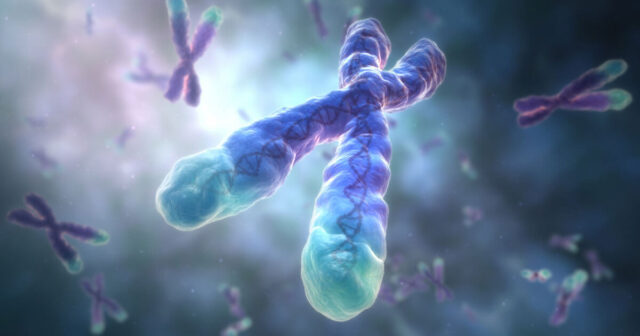New research from the University of Oxford suggests that excessive alcohol consumption accelerates aging, since its constant intake directly affects DNA, through the extremities of chromosomes – better known as telomeres -, responsible for protecting our genetic material.
Telomeres cover the ends of DNA to prevent it from being damaged, but how do you identify when these protectors are worn down? According to research, a detriment to their performance occurs when telomere length shortens; Every time a cell replicates, 50 to 100 DNA bases are lost.
But when telomeres begin to divide and shorten, cells can’t divide any more, so they tend to die. In the past, some diseases -associated with aging- such as Alzheimer’s, cancer and coronary artery disease have occurred as a consequence of a shortening of telomeres.

It was thus that the researchers analyzed whether the telomeres changed their structure in people who had recurrent alcohol consumption. This was possible with the study of 245,000 participants in the UK Biobank, who were monitored over a week, in which the studied frequently consumed alcoholic beverages.
Significant association between high alcohol intake and shorter telomere length
Through an observational analysis, the Oxford experts realized that there was a significant association between high alcohol intake and shorter telomere length. The study indicates that people who consume ten glasses of wine, 250 ml, in a week will age two years earlier than those who drink two glasses in the same period, or perhaps earlier.
“People who had been diagnosed with an alcohol use disorder had significantly shorter telomere lengths compared to controls, equating to between 3 and 6 years of age-related changes,” notes the University of Oxford.

But not everyone who drinks a little alcohol is exposed to these effects, as the analysis indicates that they require a minimum amount of alcohol consumption to damage the telomeres. However, it is one of the only two studies that suggest that consuming alcoholic beverages could accelerate aging, so the experts hope to delve deeper into the study of that specific part of the DNA.

For those who have experienced shifts in consciousness and know that more peace, joy, and love awaits in a better living environment. A bold shared vision. A living community and hub for innovation. A sustainable ecosystem for living and working. A model for the new future.
